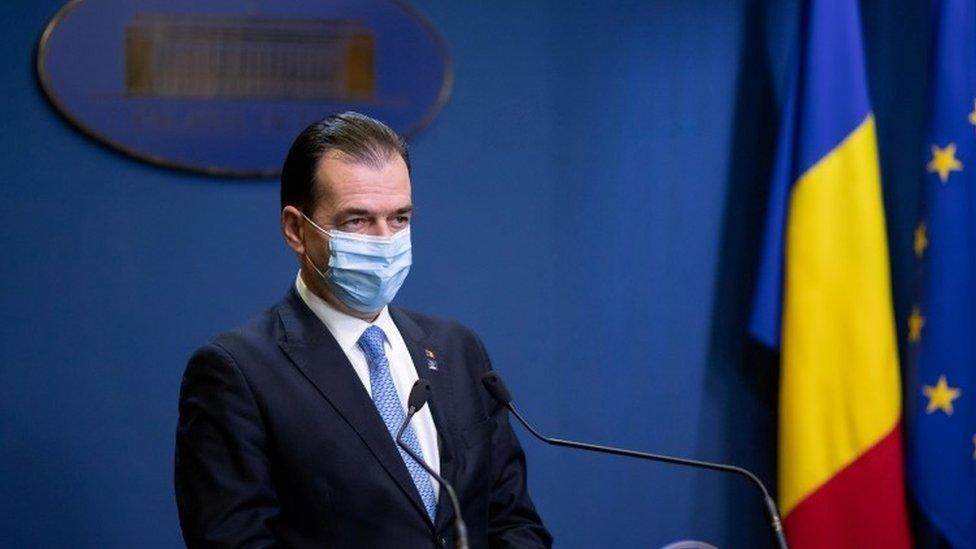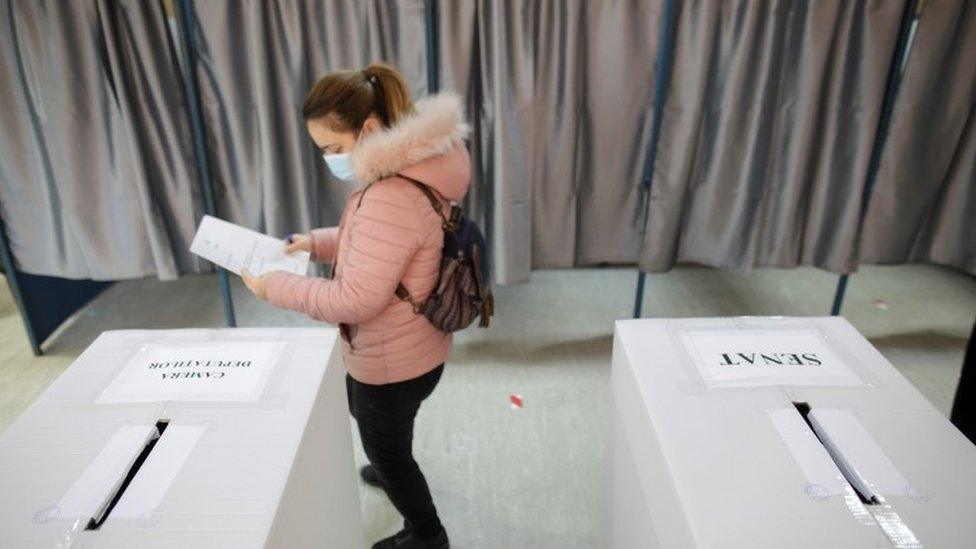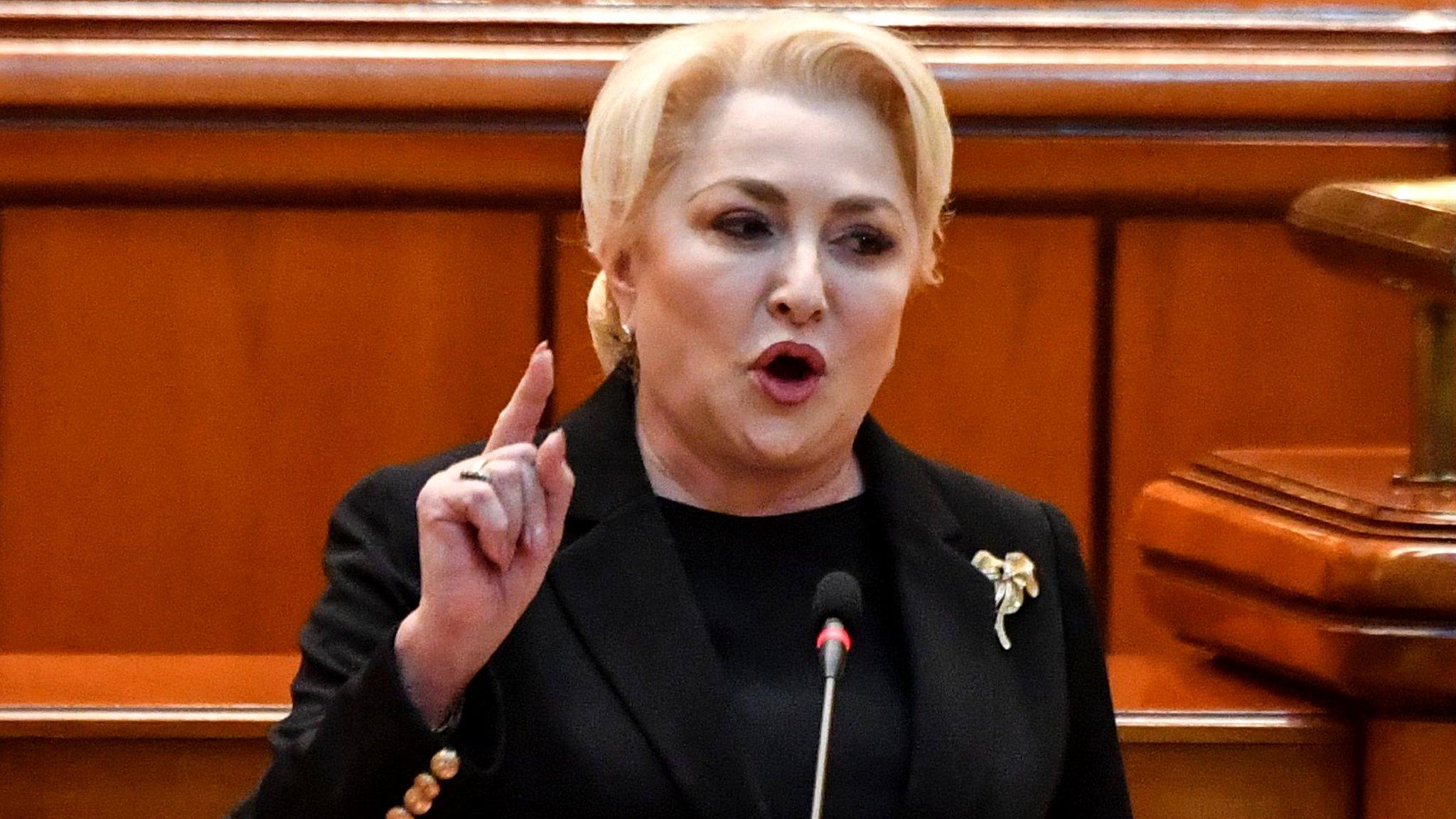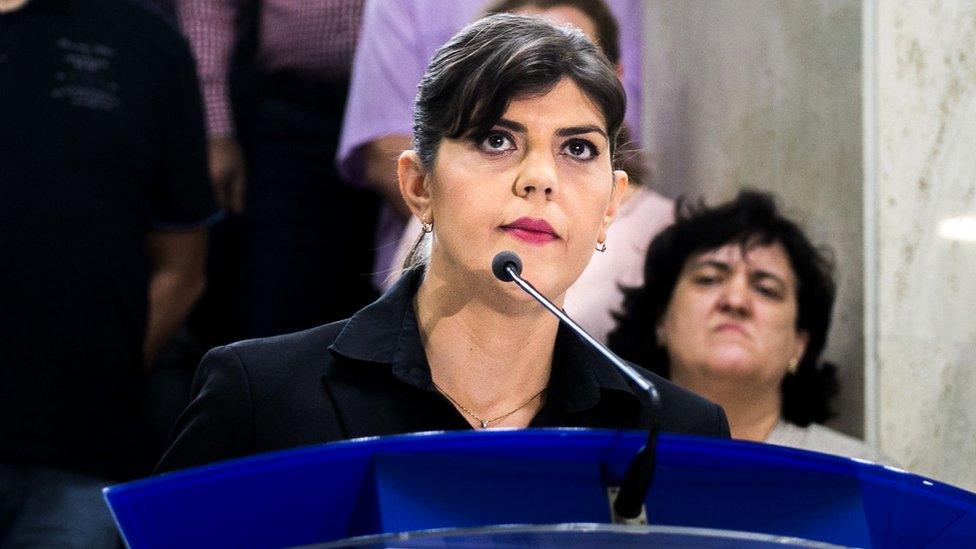Romanian PM Ludovic Orban resigns after poor election result
- Published

Orban said he was not "clinging to any position"
Romanian Prime Minister Ludovic Orban has resigned after his party's disappointing performance in parliamentary elections.
Despite losing to the opposition Social Democrats (PSD), Mr Orban said he still hoped that his National Liberal Party (NLP) could put together a majority coalition to choose his successor.
With 95% of ballots counted, the PSD had 30% of the vote to the NLP's 25%.
Mr Orban said he was not "clinging to any position".
"For me the national interest comes before the party and personal one," he said in a televised statement.
Despite winning, it is unlikely that the opposition PSD will take charge, as the NLP has more potential allies.
Several smaller parties will hold the balance of power, which appears to favour a Liberal-led coalition.
Turnout was a record low of 33%. Romania is one the poorest countries in the EU and millions of its citizens have moved abroad in recent years in search of better lives - in particular to western EU member states.
The Liberals back closer EU integration, while the Social Democrats are more nationalist and populist.
After an exit poll predicted a strong showing by the PSD, party leader Marcel Ciolacu said he expected "Orban's resignation".
"It is what Romanians have asked for with their votes," he said.
But Mr Orban initially claimed victory, saying: "We will seek to represent an array of interests."

Turnout was a record low of 33%
Correspondents say the NLP should be able to form a government in a coalition with the recently formed USR-Plus party, which looks to have won about 15% of the vote.
Another potential NLP ally is the UDMR party which represents the country's Hungarian minority. The party has already said it wants to co-operate with the NLP.
The Social Democrats were in office until last year, when they suffered a series of scandals and there were street protests. The party's previous leader, Liviu Dragnea, was jailed for corruption.
A far-right nationalist party, Alliance for Romanian Unity (AUR), will enter parliament for the first time with almost 9% of the vote.
Related topics
- Published10 October 2019

- Published19 September 2019
